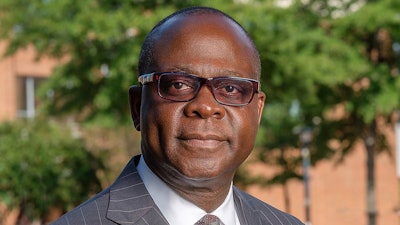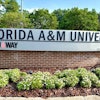North Carolina Central University (NCCU), an historically Black university, will join Eastern Carolina University and the University of Puerto Rico in efforts to diversify the field of geoscience.
The U.S. National Science Foundation has awarded a $2.14 million grant to NCCU’s Department of Environmental, Earth and Geospatial Sciences (DEEGS), as part of the more than $7 million shared among the universities, each attracting different student bodies. Eastern Carolina is predominantly white, drawing rural and first-generation students, while Puerto Rico’s student enrollment comprises mostly Latino students.
 Dr. Johnson O. Akinleye
Dr. Johnson O. Akinleye
Geosciences have been the least diverse of all science fields over the last 50 years, according to Dr. Gordana Vlahovic, chair of NCCU’s Department of Environmental, Earth and Geospatial Sciences.
In 2019, about 33% of environmental scientists and geoscientists were women, according to the American Geoscience Institute. The percentage of Black environmental scientists and geoscientists fluctuated between 1% and 7.8%, from 2005 to 2019. During the same period, the percentage of Hispanic environmental scientists and geoscientists fluctuated from about 4% to about 12%.
Vlahovic speculates that until recently geosciences might have been predominantly male because women were discouraged from the sciences in general and because of the strong field component.
Vlahovic said that economic stability may be a factor for first-generation college students as they may not see the geosciences as a field that they can build a career on.
The universities aim to change the culture of geosciences in their institutions and increase interest in geosciences over five years, collaborating with the East Carolina Environmental Justice Network, which will train students in how to work with communities to focus on problems relevant to them.
NCCU plans to recruit students who have not attended graduate school to work in DEEGS and take a graduate course(s) in the geosciences to explore them as a career.
There will be training for faculty, such as how to decolonize higher education institutions, and training for students that could include navigating academic life, how community science works, and data literacy.
There will be two intercultural summits per year for both students and faculty, a winter summit at NCCU and a summer summit at the University of Puerto Rico.
At NCCU, Vlahovic will be principal investigator, and Dr. Christopher McGinn, Dr. Rakesh Malhotra, and Dr. Timothy Mulrooney will be co-principal investigators.



















